Relationships & Sexual Health
Relationships & Sexual Health
Sex and relationships can have a big impact on our mental health. Click here to learn more about how to keep your relationships, and yourself, healthy and safe.
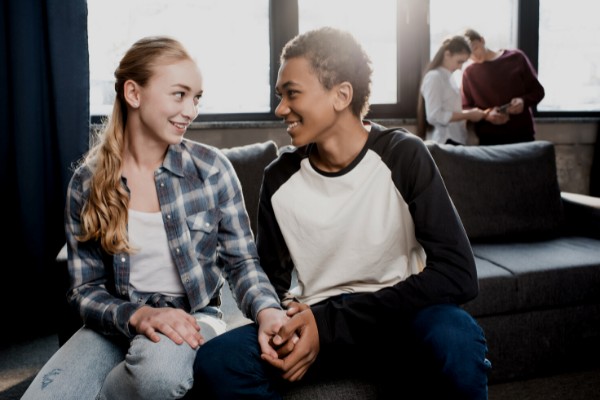
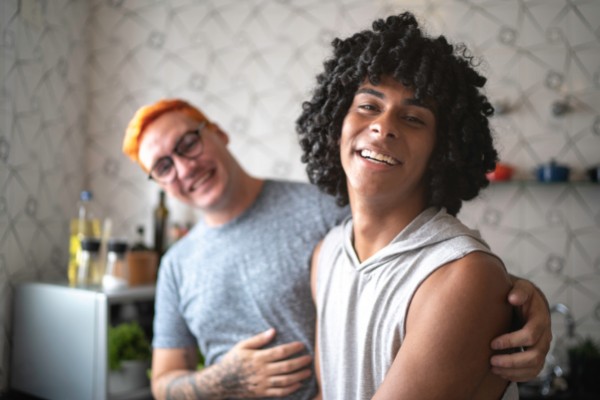
How can sex and relationships affect my mental health?
Our mental wellbeing can be affected by lots of different things, particularly our relationships with other people. For some, having an emotional or sexual relationship is a big part of our life, while others may prefer to not have a romantic partner.
It’s important that the relationships we have with others (and ourselves!) are built on trust and understanding, so that we can look after our physical and mental health.
Scroll down to learn more about how relationships can be experienced and how they can impact our wellbeing, along with tips and advice for keeping ourselves safe and healthy!
Has my relationship been affected by something else?
We all experience relationships in different ways, and it’s important to focus on what works best for you and your partner(s). Some relationships are long-distance, polyamorous (having multiple partners), casual, long-term, or platonic (without sexual attraction). However you choose to engage in relationships, it’s OK to do what feels right for you!
There are lots of things that can impact our wellbeing, and in turn our relationships. Consider the following options and tick any you feel you can relate to:
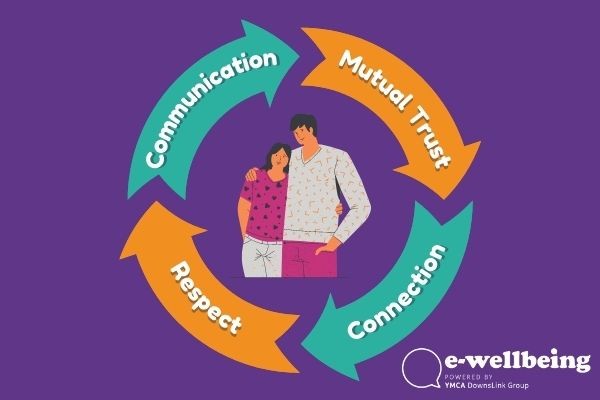
Building healthy relationships
Healthy relationships between people are built around communication, connection, trust, and respect. While every relationship (sexual or otherwise) is different, it’s important to recognise what is healthy for you.
We are all unique, so you and your partner may have different expectations and needs in a relationship. Allowing ourselves to listen, learn, and be understanding of each other’s needs is a key part of building a healthy relationship.
Connection
We all look for different things in a relationship, and a key part of building a connection is learning about how you show affection, and how you want to receive this. ‘Love Languages’ can sometimes be used to understand how we connect with others and how we want them to connect with us.
The five main languages are:
- Quality Time (spending time together)
- Physical Tough (e.g. cuddling on the sofa)
- Words of Affirmation (e.g. telling a partner how you feel about them)
- Acts of Services (e.g. cooking a meal for them)
- Receiving Gifts (e.g. buying something thoughtful as a surprise)
There is no right or wrong ‘language’ to have, and people can relate to just one, a mixture of several, or none at all! By learning more about each other’s needs, this can help us build a genuine connection with romantic or sexual partners. You can find out more about ‘Love Languages’ here.
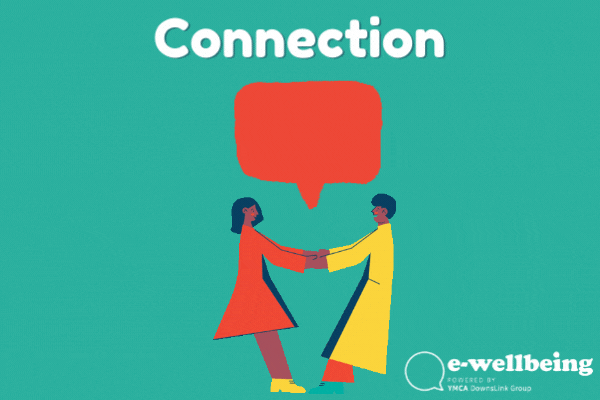
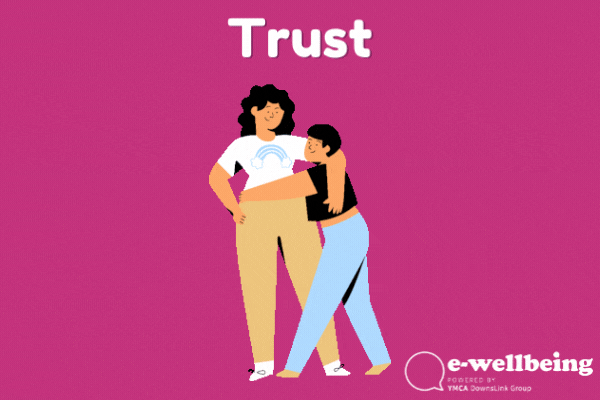
Trust
Trust is an important part of a healthy relationship and is something that can be hard for us to have, particularly if we’ve had negative experiences with that person or other people in the past.
Try to be open and honest with your partner when talking about your feelings and needs in a relationship. If you don’t feel comfortable speaking to them directly, perhaps speak to someone else (e.g. a friend, family member, or counsellor) about this.
If you are feeling unsafe in your relationship, you can scroll down for more information and support, and find local services here.
Respect
Being respectful of one another is a key part of a healthy relationship. Respect in a relationship means understanding each other’s boundaries (things we like and don’t like), using kind language and being mindful of the other person’s feelings.
Respect doesn’t mean that you must change how you think or feel, but instead that you welcome the differences between each other.
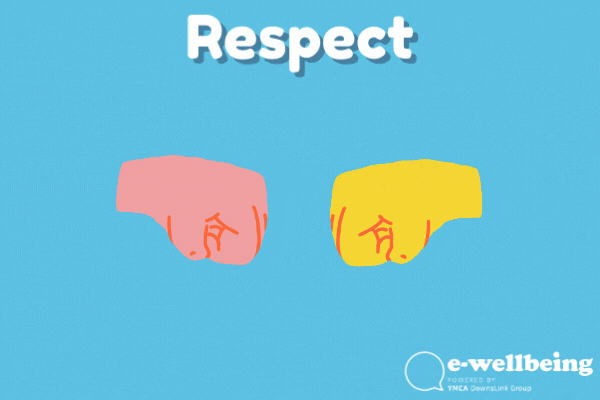
These principles may not apply to everyone
As mentioned earlier in this module, you may express affection or closeness in a different way. There are no rules about how to have a relationship, and not doing some of the above doesn’t mean that your relationship is bad!
The best way to learn about your partner’s needs is to ask them and be confident in expressing your needs and wants too.
Emotional wellbeing and relationships
Read more to learn about how to look after your emotional wellbeing in relationships, where to find support, and hear from young people about the importance of consent and the signs of unhealthy behaviour in relationships.
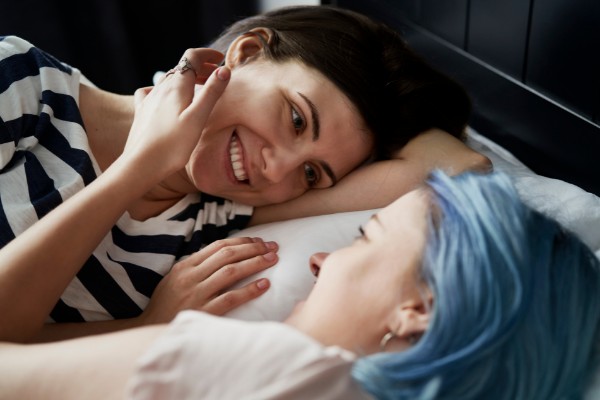
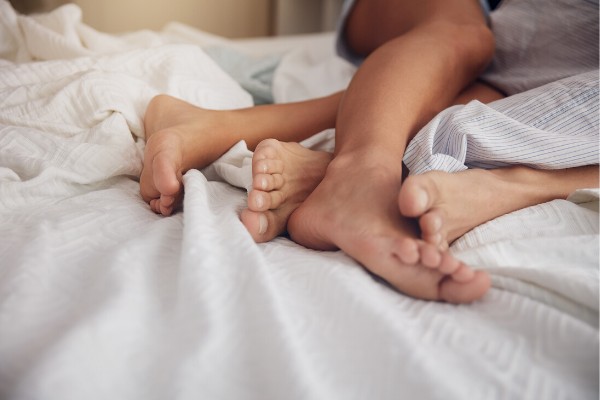
Consent in sex and relationships
Consent means giving your permission for things to happen in your relationship. Giving and respecting consent allows us to have healthy boundaries, mentally and physically. Consent is important to everyone, whether you’re dating, in a casual relationship, or have a long-term partner.
It’s important to be mindful of each other’s boundaries, as they may differ from our own. For example, you and your partner may have different sexual interests, and might be comfortable with some things but not others! By being clear about our boundaries and respecting other people’s, we can keep ourselves and our partner(s) safe.
Consent and Coercion
YMCA WiSE (What is Sexual Exploitation) work across Brighton and Hove, Surrey and East Sussex to support children and young people to stay safe in their relationships.
In this video, Youth Ambassadors Catt and Louisa explain consent, coercion, and the importance of communication:

If something doesn't feel right...
If you are in an uncomfortable position and feel that your consent hasn’t been given, here’s what you can do:
- Call 999 if you're in immediate danger
- Remove yourself from the situation
- If you feel able to, re-establish your boundaries with the other person
- Remember: it's OK to say no if something doesn't feel right to you
- Speak to a professional (e.g. a counsellor or your GP) if you have any concerns
Nobody should ever feel pressured into giving their consent to fit in with others or to please a partner If you need any support around this and how it makes you feel you can find contact information for local services here.

I don’t feel safe in my relationship – what can I do?
Feeling safe in any relationship is important and you should always feel respected by any partner. Sometimes relationships become unhealthy or toxic in nature. Unhealthy relationships can be fuelled by jealousy, mistrust, or any unkind behaviour but they are never acceptable. They can also be an indication that the relationship is becoming abusive.
Abusive behaviour in relationships can include:
- Physical abuse (hitting, pushing, or any other physical act towards you that is unwanted)
- Emotional abuse (name-calling, gaslighting, manipulation)
- Financial abuse (stealing or controlling your money against your will)
- Sexual abuse (doing things without your consent or pressuring you into sexual acts you're not comfortable with)
While life and circumstances beyond our control can impact our relationships, it’s never OK for someone to be abusive.
There are many ways someone can be abusive, so if something doesn’t feel right, it’s OK to reach out for help. Abuse is never your fault and help is out there.
If you are concerned for your safety, or someone else’s wellbeing, you can Get Help Now or find support here. If you are in immediate danger, call 999 or go to your nearest A&E and someone will help you.
Long-distance relationships
A long-distance relationship is when someone is separated from their partner(s) through distance. It may have been that you met online, or perhaps during the pandemic while travel was restricted. You may have moved away from each other for university, a new job, or simply because you chose to move home.
Long-distance relationships are just as valid as any other relationship, and can work well for many people! However, sometimes being far away from people we care about can impact our wellbeing, especially if it’s for reasons outside of our control (e.g. due to COVID-19 restrictions).
The COVID-19 pandemic has had a significant impact on the way we interact with others, including sexual and romantic partners. For more information, tips, and support in relation to Coronavirus, click here.
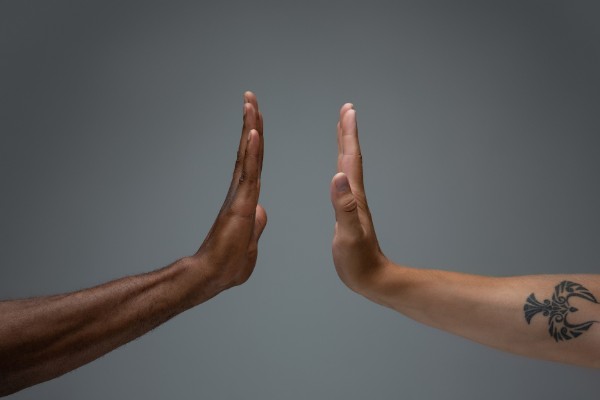
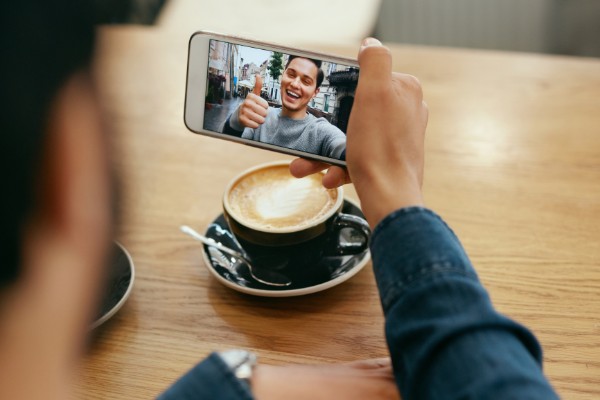
Staying connected and maintaining trust
Here are some ways to connect, maintain trust, and stay respectful in long-distance relationships:
- Have a video call with a partner so you can see them face-to-face. You could try dressing up for the occasion, or doing a workout together!
- Have a watch party (e.g. on Netflix or Disney+) so you can experience the same TV show or film at the same time
- Play a game together – this could be an interactive quiz where you learn things about one another, or something where you can work as a team!
- Remember that your individual wellbeing is important to your relationship – you could practise self-care by keeping a diary, trying mindfulness exercises, or doing hobbies you enjoy
- Go on virtual dates together, such as doing an online art class, cooking the same meal, or going on a virtual museum tour!
Sexual health: How can I stay safe?
Maintaining good sexual health is always important to keep yourself and others safe. In this section you’ll find tips on how you can do this, as well as information about sexual health and contraceptive services.
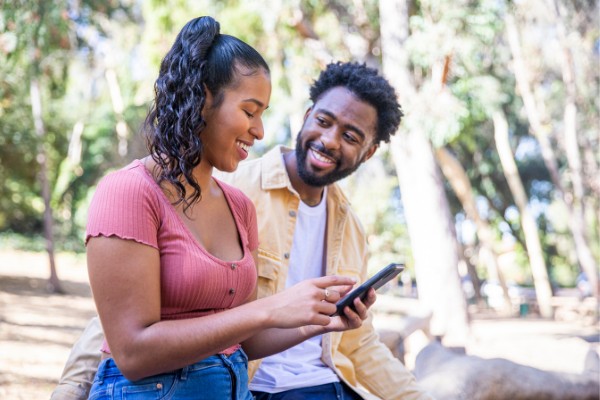
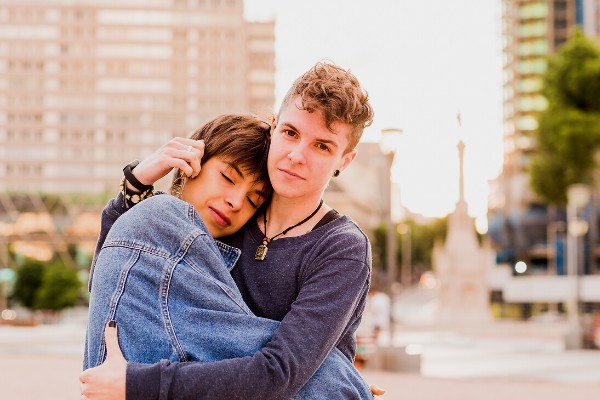
How can I keep my sexual relationships healthy?
Sex can be important for many of us, whether this is in a relationship, with casual partners, or ourselves! While sex can be a way to build intimacy and connection, it’s important to make sure we are looking after our mental and physical health at the same time.
As mentioned earlier in this module, consent is a key part of staying safe in our sexual relationships because it allows us to have a mutual understanding of each other’s expectations and boundaries. It’s also important to look after our mind and bodies by keeping on top of our sexual health and practising self-care.
Read on to learn about ways to have fun while staying safe!
Tips for maintaining your sexual health
There are lots of ways you can maintain your sexual health, which is important whether you’re in a relationship or not. In this video, YMCA WiSE Youth Ambassador Louisa shares her tips for positive sex and looking after your sexual wellbeing.
You can find more information and advice about sexual health on the WiSE website and by reading on!

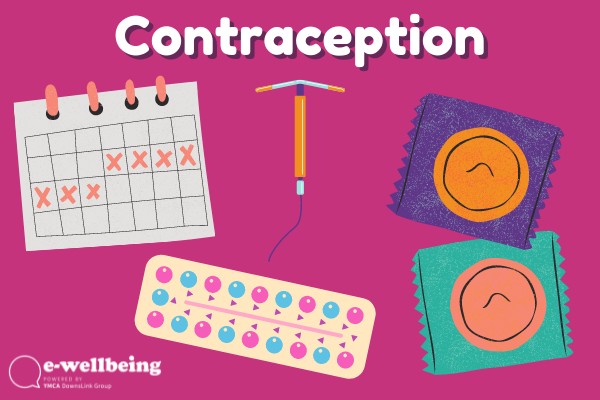
Contraception
A key part of looking after our sexual wellbeing is sexual health, including protecting ourselves from sexually-transmitted infections (often referred to as STIs or STDs) and unwanted pregnancy.
There are lots of different types of contraception available and it’s important to find what works for you, which will depend on what is most suited to your body and needs. To find out more about your options, speak to your GP, your local sexual health service, or click here to find more information. You can also get emergency contraception (often called ‘the morning after pill’) from your GP, sexual health services, or your local pharmacy.
Condoms are the only form of contraception that can also protect you from STIs and can be used by many of us. If you’re aged 13-24, you can get free condoms, lube, and femidoms by using The C-Card Scheme – scroll down to find out how to access this!
Accessing the C-Card Scheme
Brighton & Hove Sexual Health & Contraception Service (SHAC)
Email: [email protected]
Phone: 01273 523388
Or download the app!
East Sussex Sexual Health
Order free condoms for delivery or collection (in discreet packaging)
Sexual Health West Sussex
Email: [email protected]
Phone: 0800 0150 503
You can also get free C-Card packs from a range of pharmacy outlets, youth agencies, and sexual health services; once you’ve registered your C-Card, just look out for the C-Card sign and give your card to a member of staff!
Getting Tested
Being tested for STIs regularly is one of the most important ways to protect yourself and others. Even if you’re not currently sexually active, it’s always a good idea to test yourself regularly. Some STIs don’t have symptoms, and can impact your health (and other people’s) if left untreated.
It's OK to feel a bit awkward or nervous about getting an STI test, but taking care of your body is a good thing! The medical professional doing your test(s) is there to support you, and won’t be judgemental. They will also be able explain how the test works, and give you further advice if needed.
If you don’t feel comfortable going to a service, or it’s difficult for you to access one, you can get FREE at-home STI testing kits. These are easy to use and delivered in discreet packaging. All you have to do is order online, follow the instructions, then post back and wait for the service to text you with your results!
For Brighton & Hove CLICK HERE
For East Sussex CLICK HERE
For West Sussex CLICK HERE
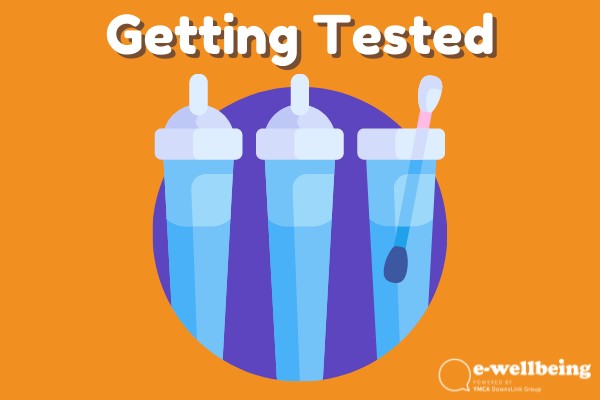
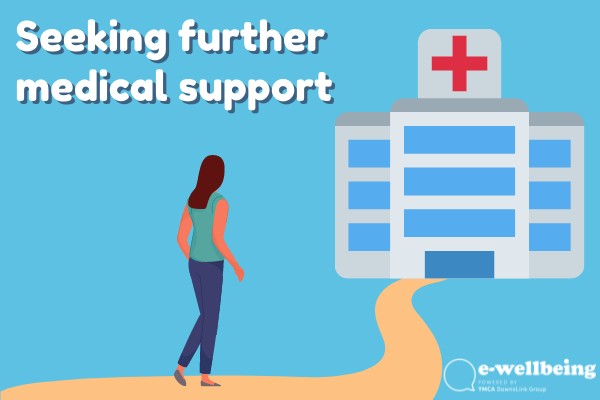
Further Medical Support
If you need to find further help with your sexual health, there are lots of ways to access to support depending on your needs. If you discover you are pregnant and you’re unsure what to do, it’s important to seek help as soon as possible. Whatever your age, you can find support from your GP, local sexual health clinic, on the NHS website, or by ringing 111 (available 24/7, 365 days a year). A medical professional will help you explore your options and decide what is the right choice for you.
If you are living with a long-term sexually-transmitted infection, it can be helpful to seek support to help with your wellbeing. If you are living with HIV, you can find information, advice, workshops, and peer support groups through the Terrence Higgins Trust.
Staying Safe Online
Social media is a great way to stay connected with loved ones, and to build connections with existing or new partners. If you choose to use online ways of connecting to potential partners (e.g. through dating apps) it’s important to be mindful of your safety and wellbeing.
Some tips for staying safe online are:
- Only share things you feel comfortable sharing, with people you trust. If you feel pressured to send something you’re not comfortable with (e.g. nude photos), you are allowed to say no!
- Avoid sharing personal details (e.g. your address) with someone you don’t know in-person. You should never feel pressured to send someone money – if this is happening, stop contacting the person immediately and report to the police.
- Never send sexual content (e.g. sexts or nude photos) to someone if they, or you, are under the age of 18 as this is a criminal act. You can find more information about this here.
REMEMBER: if you feel uncomfortable or that something isn’t right, it’s OK to stop talking to the person, block them, or call the police if you are worried about your safety.
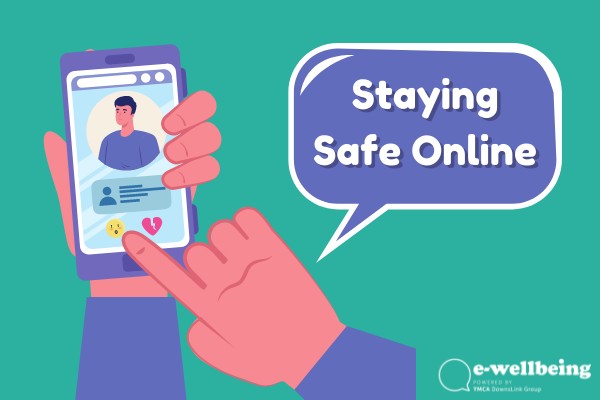
Self-care and relationships
Self-care is important for everyone, including in our relationships. Read on to find tips for practising self-care and how to boost your self-esteem, whether you are in a relationship, dating, or single!
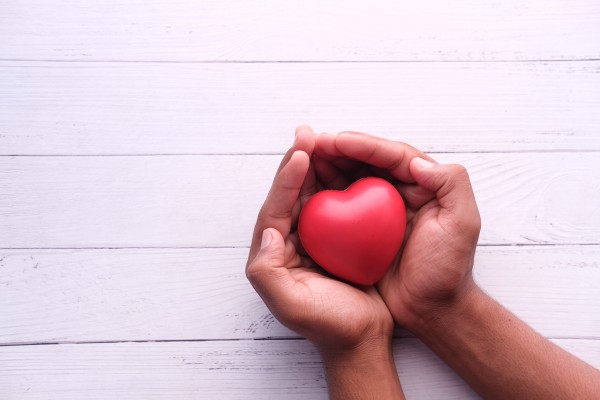
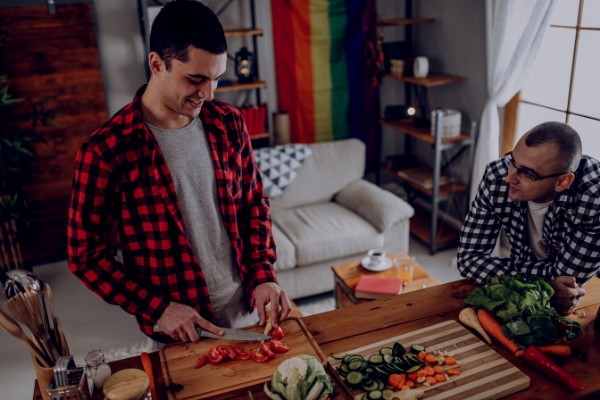
Self-care when you live with your partner
When living with a partner, sometimes we can forget to look after our individual wellbeing. It’s also easy to develop habits within a relationship, which can leave us feeling like we’re ‘stuck in a rut’. Here are some ways to practise self-care and give your relationship a boost:
- Make time for date nights or doing activities as a couple
- Share chores and household responsibilities, or try doing them together!
- Appreciate the importance of time apart – this could be time on your own, or with others without your partner
- Make space to express your feelings to one another; remember, communication is key!
Support your own wellbeing
When we take time to look after ourselves, we are able to bring our best selves to our relationships. That doesn’t just mean romantic or sexual relationships; understanding our own wellbeing allows us to build better connections with friends, family, colleagues, and more!
Some examples of ways to support your personal wellbeing are:
- Journaling your thoughts and feelings to express yourself
- Allowing space to spend time with others outside of your relationship (e.g. friends or family)
- Trying mindfulness, meditation, or grounding techniques by using apps such as HeadSpace, Calm or The Mindfulness App
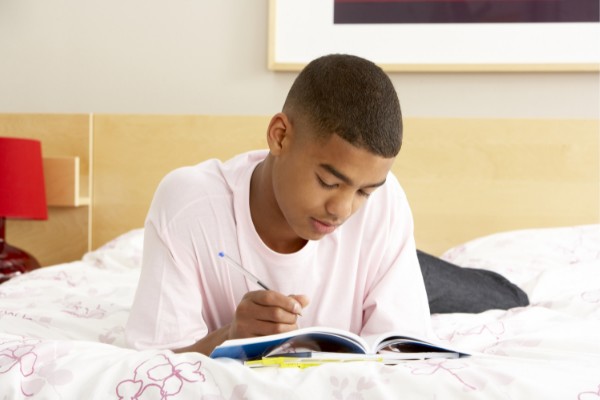

Boosting your self-esteem
While self-care can involve activities or hobbies that we enjoy, it’s also about understanding our feelings, needs, and worth. When we acknowledge our own self-worth, we can bring this into the relationships we build with others too! For more tips and advice, visit our Self-Esteem module.
Here are some ways we can boost self-esteem and remember our self-worth:
- Remind yourself that you are important as an individual; being in a relationship, dating, or single doesn’t make you any more or less worthy
- Spend time with people that make you feel good about yourself
- Take time to consider your values and beliefs, and remember these are valid even if others have different views
- Explore your own sexual pleasure in a way that you feel safe and comfortable
- Try using affirmations to boost your self-esteem – you can find some examples here
- Acknowledge that sometimes things change, and that’s OK!

Get Help
If you feel that a relationship in your life is having an impact on your wellbeing, it may be a good idea to get some help.
Click here to find mental health support services in your area